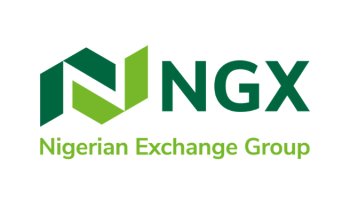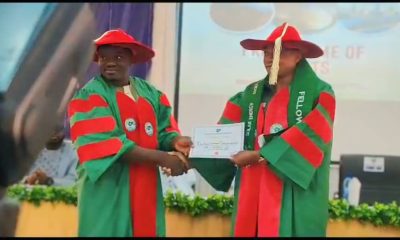Economy
Buying Interests on Seplat, others Cause N57bn Gain on NGX

The equities market kicked off the trading week with positive sentiments, following investors’ buying interests, making investors to gain N57 billion on Monday.
Also, the market capitalisation stood at N28.214 trillion compared to N28.157 trillion posted at the last trading session.
The uptrend was impacted by gains recorded in large capitalised stocks, amongst which are; Seplat, Guaranty Trust Holding Company (GTCO), UCAP, among others.
Similarly, the All-Share Index rose by 0.
2 per cent to 52,319.94 points from -52,215.12 points recorded on Friday.Consequently, the year-to-date gain of the NGX AS rose to 22.48 per cent.
Performance across sectors was mixed, as the Consumer Goods index dropped by 0.
6 per cent and Insurance index fell by 0.5 per cent.The Oil and Gas index increased by four per cent, while the Banking and Industrial Goods indices closed flat.
The market breadth was negative as 14 stocks advanced and 22 stocks declined.
Seplat dominated the gainers’ table in percentage terms, gaining of 10 per cent, to close at N1.430 per share.
Conerstone Insurance followed with 8.77 per cent to close at 62k, while RTBriscoe rose by 8.11 per cent to close at 42k per share.
Wema Bank garnered 6.95 per cent to close at N4, while Fidson Pharmaceuticals appreciated by 5.21per cent to close at N9.90 per share.
On the other hand, CWG led the losers’ chart in percentage terms, dropping 10 per cent to close at 81k per share.
Academy Press followed with a decline of 9.50 per cent to close at N2, while Honey Flour lost 9.09 per cent to close at N2.50 per share.
NAHCO lost 8.81 per cent to close at N6 per share, while Regent Alliance Insurance dropped by 7.41 per cent to close at 25k.
Conversely, the total volume traded declined by 38.8 per cent to 116.28 million units, valued at M3.46 billion, and exchanged in 4,525 deals.
This is against 190.10 million shares valued at N4.13 billion which were exchanged in 3,893 deals on Friday.
Transactions in the shares of United Bank for Africa (UBA) topped the activity chart with 12.93 million shares worth N96.88 million.
Zenith Bank followed with 10.68 million shares valued at N235.68 million, while First Bank of Nigeria Holdings (FBNH) traded 8.71 million shares worth N88.72 million.
Accesscorp sold 6.71 million shares valued at N62.72 million, while GTCO transacted 5.89 million shares worth N125.39 million. (NAN)
Economy
Investors Gain N183bn on NGX

The Nigerian Exchange Ltd. (NGX) continued its bullish trend on Wednesday, gaining N183 billion.
Accordingly, the market capitalisation, which opened at N59.532 trillion, gained N184 billion or 0.31 per cent to close at N59.715 trillion.
The All-Share Index also added 0.31 per cent or 303 points, to settle at 98,509.
68, against 98,206. 97 recorded on Tuesday.Consequently, the Year-To-Date (YTD) return increased to 31.
74 per cent.Gains in Aradel Holdings, Zenith Bank, United Bank For Africa(UBA), Oando Plc, Nigerian Breweries among other advanced equities drove the market performance up.
Market breadth closed positive with 34 gainers and 17 losers.
On the gainers’ chart, Africa Prudential, Conoil and RT Briscoe led by 10 per cent each to close at N14.30, N352 and N2.42 per share, respectively.
Golden Guinea Breweries followed by 9.95 per cent to close at N7.18, while NEM Insurance rose by 9.74 per cent to close at N10.70 per share.
On the other hand, Julius Berger led the losers’ chart by 10 per cent to close at N155.25, Secure Electronic Technology Plc trailed by 9.52 per cent to close at 57k per share.
Multiverse lost 7.63 per cent to close at N5.45, Haldane McCall dropped 6.07 per cent to close at N4.95 and Honeywell Flour shed 5.62 per cent to close at N4.70 per share.
Analysis of the market activities showed trade turnover settled lower relative to the previous session, with the value of transactions down by 49.44 per cent.
A total of 320.10 million shares valued at N6.48 billion were exchanged in 7,943 deals, compared with 939.41 million shares valued at N12.81billion traded in 9,098 deals posted in the previous session.
Meanwhile, ETranzact led the activity chart in volume with 70.27 million shares, while Aradel led in value of deals worth N1.22 billion.(NAN)
Economy
Yuan Weakens to 7.1870 Against Dollar

The central parity rate of the Chinese currency renminbi, or the Yuan, weakened 22 pips to 7.1870 against the dollar on Monday.This is according to the China Foreign Exchange Trade System.In China’s spot foreign exchange market, the Yuan is allowed to rise or fall by two per cent from the central parity rate each trading day.
The central parity rate of the Yuan against the dollar is based on a weighted average of prices offered by market makers before the opening of the interbank market each business day. (Xinhua/NAN)Economy
Bring Kaduna Refinery Back into Operation, Youth Group Urges NNPCL

Arewa Youths Initiative for Energy Reforms (AYIFER), has urged Nigeria National Petroleum Corporation Limited (NNPCL) to do everything possible to bring Kaduna Refinery back into operation.
National Coordinator of the group, Mr Bashir Al’Amin, stated this in a statement issued on Friday in Abuja.
Al’Amin specifically called on the Chief Executive Officer of NNPCL, Mallam Mele Kyari, to do all within his powers to rejuvenate the refinery and bring it up to global standard.
He said that having delivered the Port Harcourt refinery, coupled with the establishment of Dangote Refinery in Lagos, attention should be shifted to Kaduna refinery for easy spread of petroleum products.
“We are calling on Malam Mele Kyari to expedite action on Kaduna refinery so we can be at par with other regions in the country.
“We equally beg the NNPCL to do professional work in rehabilitating the old refinery and deliver a standard and functional petrochemical refinery and not a blending plant.
“Kyari should resist any temptation that could make him do something that can jeopardise his good image,” he said.
Al’Amin said that since the extinction of groundnut pyramid and textiles in Kano State as well as PAN in Kaduna State and with the Kaduna refinery getting moribund, a lot of youths had lost their jobs.
According to him, all their hopes in the north are tied to the legacy refinery, expressing the hope that God would use Kyari to deliver it well and on time.
He said that the group was solidly behind NNPCL in prayer and would be ready to celebrate the company if its expectations were met. (NAN)





















